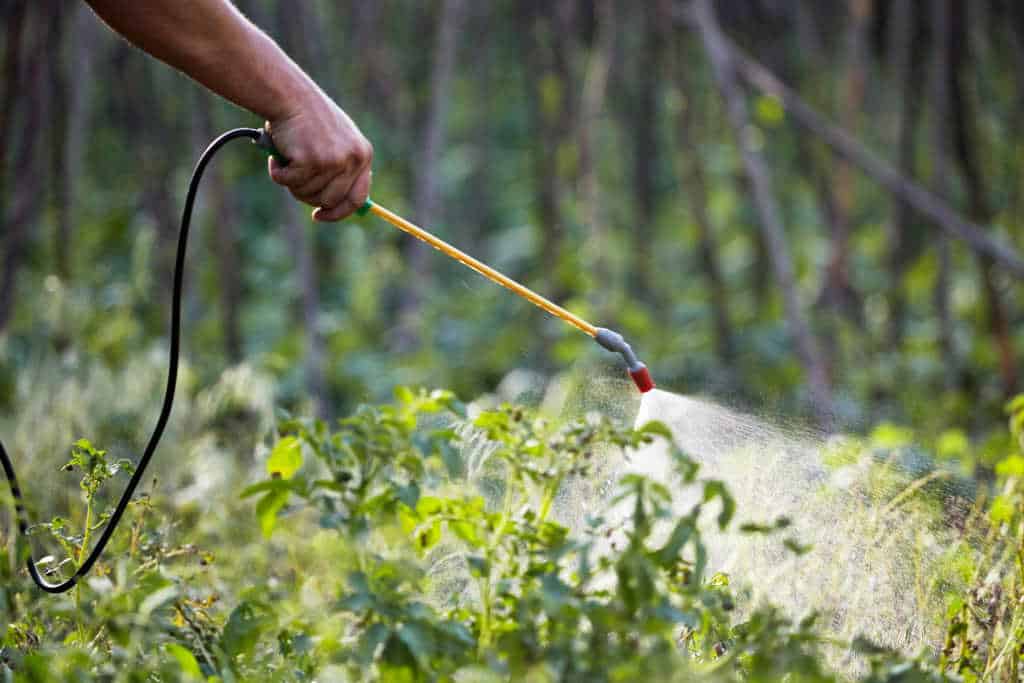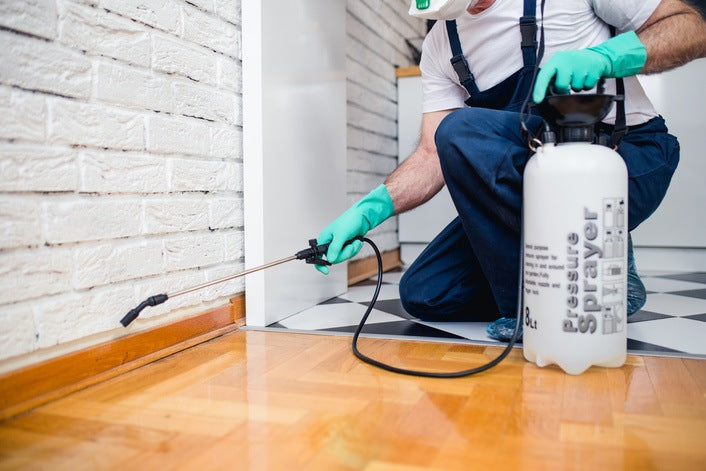How King Bed Bug Exterminator Can Change Your Home in Cincinnati
How King Bed Bug Exterminator Can Change Your Home in Cincinnati
Blog Article
The Ultimate Guide to Eco-Friendly Pest Removal Methods for Sustainable Living
In the world of sustainable living, the mission for efficient yet environmentally friendly parasite control methods is a critical concern for numerous conscientious people. The delicate balance between removing unwelcome burglars and protecting the ecosystem can be a tough one to navigate. In this guide, we will explore an array of green bug removal techniques that not just address insect concerns yet additionally promote the concepts of sustainability. From natural repellents to the strategic use of advantageous pests, each approach uses an one-of-a-kind approach to taking care of bugs without causing injury to the setting. By taking on these eco-conscious methods, individuals can produce an unified conjunction with nature while safeguarding their living spaces.
All-natural Repellents
When seeking environment-friendly parasite elimination methods, making use of all-natural repellents can be a lasting and very efficient strategy. All-natural repellents are compounds stemmed from plants, minerals, or other naturally happening resources that deter bugs without causing damage to the atmosphere, human beings, or non-targeted wildlife. These repellents work by emitting fragrances or generating preferences that parasites locate unpleasant, driving them away from the location. Common natural repellents include essential oils like citronella, pepper mint, and tea tree oil, as well as compounds like diatomaceous earth, vinegar, and chili powder.
Additionally, all-natural repellents are typically readily available, affordable, and very easy to use, making them available to a large array of people looking to address pest problems in an environmentally pleasant manner. By incorporating natural repellents right into pest administration approaches, individuals can effectively regulate pests while advertising sustainability and eco-conscious methods.
Beneficial Pests
Beneficial bugs play a crucial function in maintaining ecological balance and supporting sustainable pest management practices. These bugs are all-natural killers of several common yard pests, helping to keep their populaces in check without the need for dangerous chemicals. Ladybugs, for instance, are ravenous consumers of aphids, termites, and other soft-bodied insects that can damage plants. Lacewings are one more helpful pest that feeds on aphids, caterpillars, and other devastating pests - King Bed bug exterminator.
Introducing advantageous bugs to your yard can aid minimize the requirement for synthetic chemicals, advertising an extra green and lasting technique to pest control. By drawing in these all-natural killers through the usage of friend planting, offering suitable environments, and staying clear of using chemical pesticides that harm both pests and valuable pests, you can produce a balanced community where pests are managed naturally. Urging biodiversity in your yard by welcoming advantageous insects not only aids secure your plants but also adds to the overall health and wellness of the environment.
Mechanical Catches
In the realm of green bug removal techniques, one reliable technique involves the usage of mechanical traps. These catches are developed to catch insects without the usage of hazardous chemicals, making them a secure and environmentally pleasant choice for insect control. Mechanical catches come in numerous kinds, consisting of snap traps, live traps, and electronic traps, each serving a certain purpose in insect removal.
Live traps, on the other hand, are developed to capture pests active so they can be released back into the wild unhurt. These traps are optimal for bigger pests like raccoons or squirrels.

Biological Controls
The use of all-natural predators or virus to manage insect populaces is a ecologically conscious and sustainable technique understood as organic controls. By taking advantage of the power of nature's own checks and balances, organic controls offer a targeted and effective technique of insect monitoring without making use of dangerous chemicals.
One typical form of biological control is the introduction of natural killers to battle pest populaces. For instance, ladybugs are typically launched right into gardens to control aphids, while certain varieties of wasps are used to manage caterpillar infestations. These predators prey on the bugs, aiding to normally control their numbers and reduce damage to crops.
Another biological control approach includes utilizing pathogens such as fungis, infections, or bacteria to contaminate and eliminate insects. These virus specify to the target parasite and do not harm other helpful organisms or the atmosphere. For example, Bacillus thuringiensis (Bt) is a naturally occurring soil bacterium that is used to regulate caterpillars and specific sorts of beetles.
Eco-Friendly Pesticides
Making use of ecologically safe pesticides is King Bed bug exterminator essential in maintaining a balance in between effective parasite control and eco-friendly sustainability. Green pesticides, additionally recognized as organic chemicals, are originated from natural resources and created to target certain bugs while minimizing harm to valuable insects, pets, and the atmosphere (King pest control companies). These pesticides are developed to break down promptly, decreasing the threat of infecting dirt and water sources
One common environmentally friendly pesticide is neem oil, removed from the seeds of the neem tree, which serves as a repellent, antifeedant, and disruptor of insect growth. One more natural alternative is diatomaceous planet, a powder made from fossilized algae that damages the exoskeletons of bugs. In addition, insecticidal soaps and oils derived from plants like pepper mint, rosemary, or thyme can efficiently regulate pests like aphids, caterpillars, and termites.

Conclusion

In this overview, we will discover a variety of environment-friendly bug elimination strategies that not just address pest issues however also maintain the principles of sustainability. By including all-natural repellents into bug management methods, people can efficiently regulate insects while advertising sustainability and eco-conscious practices.
By attracting these all-natural predators with the usage of companion planting, providing ideal habitats, and preventing the usage of chemical pesticides that hurt both pests and helpful insects, you can create a well balanced ecosystem where insects are regulated naturally. These catches are designed to capture insects without the usage of harmful chemicals, making them a environmentally friendly and risk-free alternative for pest control. By utilizing all-natural repellents, beneficial insects, mechanical traps, biological controls, and eco-friendly pesticides, people can properly take care of pest populations without hurting the setting.
Report this page